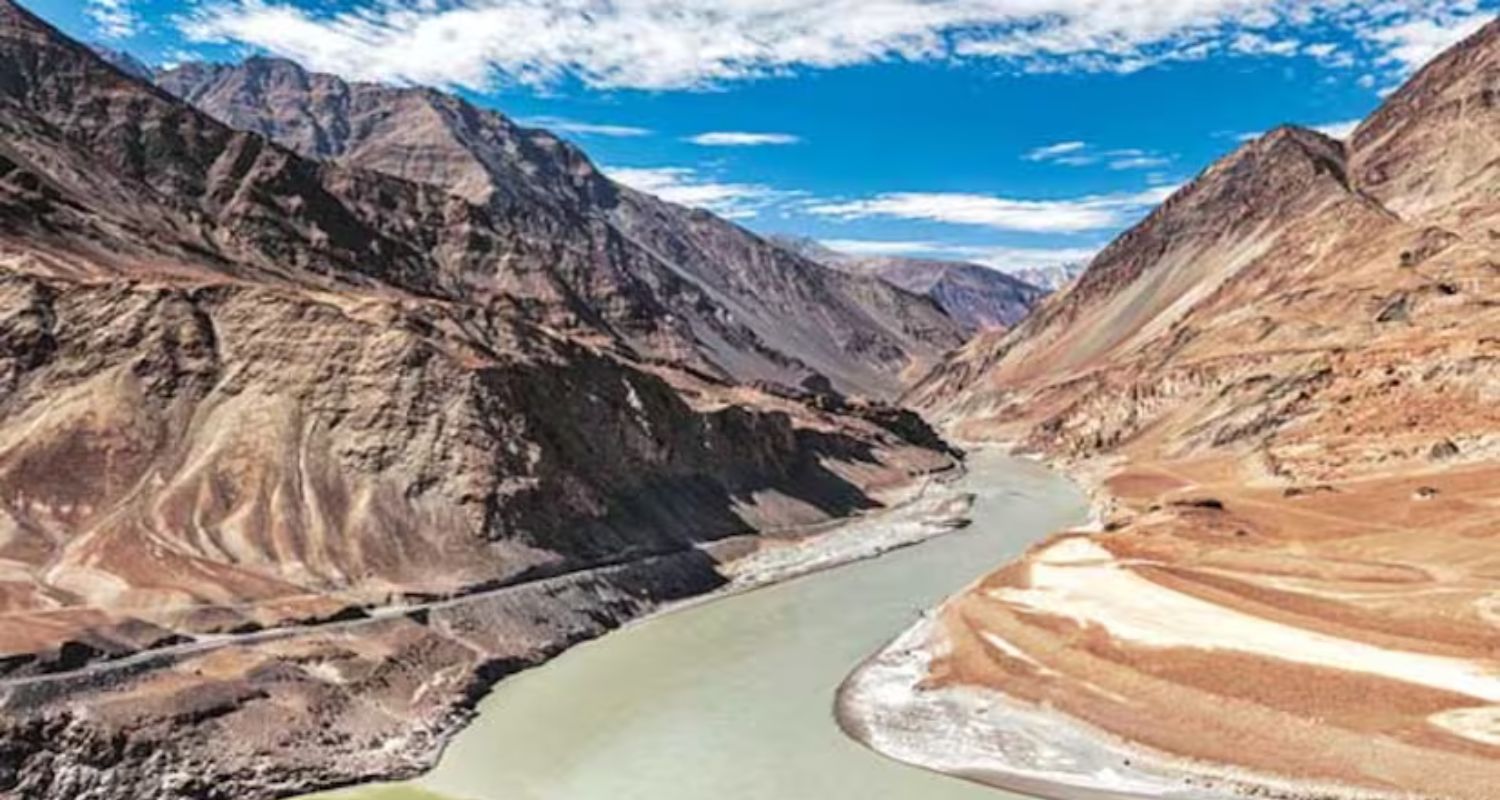A recent 'supplemental award' from what it describes as a 'illegal' and self-appointed Court of Arbitration purportedly established under the 1960 Indus Waters Treaty has been strongly rejected by India. The Ministry of External Affairs (MEA) declared that the so-called arbitration panel had no legal standing and that its conclusions were void, calling the tribunal's establishment a flagrant violation of the treaty itself.
"Today, the illegal Court of Arbitration, purportedly constituted under the Indus Waters Treaty 1960, albeit in brazen violation of it, has issued what it characterises as a supplemental award' on its competence concerning the Kishenganga and Ratle hydroelectric projects in the Indian Union Territory of Jammu and Kashmir," the MEA claimed in a comprehensive five-point statement issued on Friday.

India reaffirmed that the tribunal's establishment is a grave violation of the treaty and emphasised that it has never acknowledged its legitimacy. The ministry said, "India has never recognised the existence in law of this so-called Court of Arbitration." "India has consistently maintained that this so-called arbitral body's constitution constitutes a grave violation of the Indus Waters Treaty."
"Therefore, any proceedings before this forum and any award or decision taken by it are also for that reason illegal and per se void," it added firmly.
India blamed Islamabad directly for the breach of trust that resulted in India putting the Indus Waters Treaty on hold and connected the conflict to Pakistan's ongoing support of terrorism. "India, in exercise of its rights as a sovereign nation under international law, placed the Indus Waters Treaty in abeyance, until Pakistan credibly and irrevocably abjures its support for cross-border terrorism," the statement said, citing the terror attack in Pahalgam, Jammu and Kashmir, which India linked to elements based in Pakistan.
Also Read: Pak PM ready for ‘meaningful dialogue’ with India
India said it is no longer bound by any of the treaty's provisions until Pakistan dismantles all of its terrorist infrastructure and stops supporting terrorism. India also charged Pakistan with influencing international processes by promoting the establishment of this fictitious Court of Arbitration. The MEA stated that "no Court of Arbitration, much less this unlawfully established arbitral body which does not exist in the eyes of the law, has the jurisdiction to examine the legality of India's actions in exercising its rights as a sovereign."
Similar to how it had rejected all of this forum's earlier declarations, India categorically rejected the "supplemental award," claiming it was a farce designed by Pakistan to avoid responsibility.
India reaffirmed its zero-tolerance policy against terrorism, emphasising that any future terrorist attack or terror activity connected to Pakistan will be viewed as a serious provocation that calls for a military response "anywhere in Pakistan." Pakistan's actions were characterised by the MEA as continuing its "decades-long pattern of deception and manipulation" in international affairs. "Pakistan is making yet another desperate attempt to avoid responsibility for its role as the global epicentre of terrorism with this latest charade at its behest."
Also Read: J&K river waters meant for own people, affirms CM Omar
The six rivers of the Indus basin were split between the two nations by the 1960 Indus Waters Treaty, which was mediated by the World Bank. With a number of conditions and cooperative provisions, including the construction of hydropower projects, yearly data sharing, and mutual consultation, the agreement gave India access to the waters of the three eastern rivers, the Beas, Sutlej, and Ravi, while granting Pakistan access to the waters of the three western rivers, the Indus, Jhelum, and Chenab.
At the time of the treaty's signing, India stated that its choice to share the western rivers was an act of goodwill. However, India stated that goodwill is no longer viable in light of the frequent terror attacks and Pakistan's unwillingness to dismantle terror networks.
"Blood and water cannot flow together," the statement concluded, quoting Prime Minister Narendra Modi's longstanding position. India reaffirmed that "terror and talks cannot go hand in hand either," emphasising that the only way to fulfil treaty obligations and resume bilateral communication is to completely destroy Pakistan's terror infrastructure.
Also Read: Pak begs over Indus with letters, India firm on 'no-terror' pact



